
Kathmandu (Pahichan) October 29 – Nhabhakha Kittithamavoot (Joy) is a Human Resources (HR) Director at an international non-governmental organization (INGO) in Thailand. Having an extensive background in HR in both the private sector and in INGOs, she has encountered the full spectrum of human diversity. She has witnessed first-hand instances of bullying, harassment and discrimination based on sexual orientation, gender identity and expression, and sex characteristics towards job candidates and employees. Recognizing the harm that this causes to the employees and organizations, Joy has pledged to help cultivate an employment culture that is accepting and inclusive for LGBTI people.
What motivates you to dedicate a significant part of your work to LGBTI inclusion?
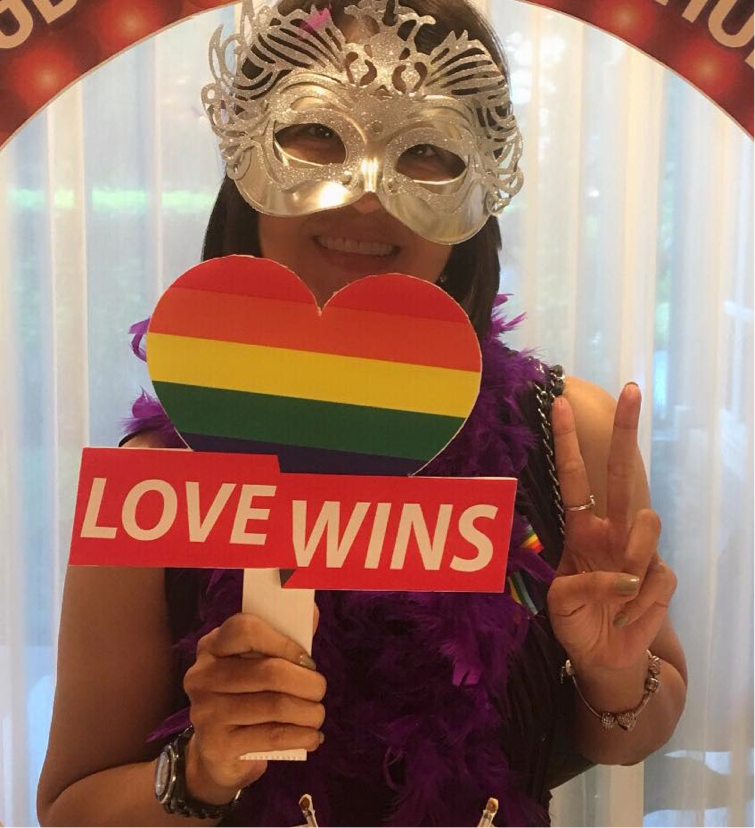
Joy: There was a specific event that drew me to this particular path. I invited a trans woman for a job interview. Looking at her experience in her CV, just like I have done with thousands of other CVs, I believed she would make a strong candidate. After interviewing her and seeing her through the recruitment process, I was convinced. The fact that the gender title on her identity documents, Mr., was not in compliance with her appearance did not bother me for one second. But it did bother others, including the hiring manager. They projected a rude manner during the interview and, in the end, chose the weaker ‘real gender’ candidate. It was obvious that the trans woman was a perfect match for the position so I asked for an explanation. The reason given was: “Trans people are hot-tempered, tough to work with, hard to control and supervise. I cannot and do not want to work with her”. My expertise was even called into question. I was shocked. She was so qualified. She deserved the opportunity. Sadly, I still see a lot of these cases.
As a HR Director, it is my ethical responsibility to value every human being equally. I am not OK with candidates or employees who are talented and perfect in their roles being treated unfairly and disrespectfully, just because they are not heterosexual. It is an injustice that I count as a loss to the organization. These narrow-minded mindsets need to be broadened, it is very important.
You practice a zero tolerance policy. Can you please share with us any incidents that have taken place and how you immediately confronted them? How would you encourage others to do the same?
Joy: There should be no ‘elephant in the room’. My approach is to sort it out as it happens. On one occasion, I witnessed an act of sexual harassment committed by a member of the directorate level to an LGBTI employee who was under my supervision. I felt the responsibility to step in and help her. In front of everyone, I condemned his unacceptable behaviour. I said, “you cannot do this to anyone, you have no right to do it, we are all equal” and I asked him to give her a genuine apology, to which he refused at the time. I would not give up and we ended up in mediation. The whole thing is not to embarrass him but for other people in the office to be made aware and learn the same lesson.
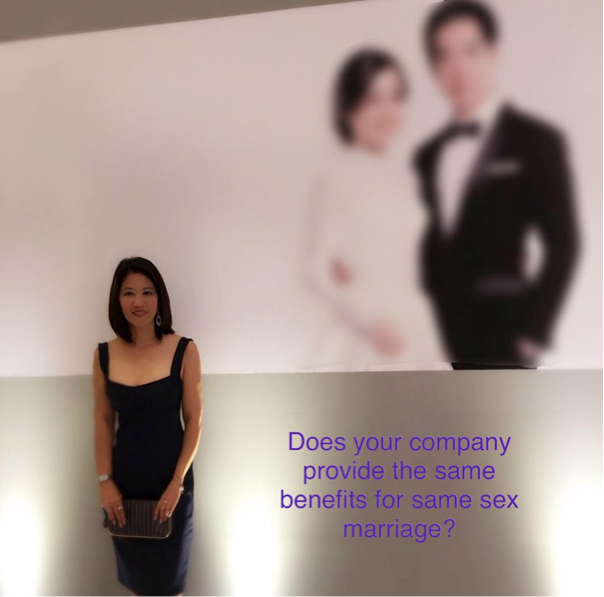
Most discrimination continues to go unpunished as a result of the lack of courage of people who should be taking action. The longer you wait without doing anything about it, the more tolerable it becomes. This is why it keeps happening, without a doubt. It is about helping other people in society protect their individual rights. We need as many voices as we can. From now on, if you see it, stop it.
“It is about helping other people in society protect their individual rights. We need as many voices as we can. From now on, if you see it, stop it.”
What kind of issues remain the top challenges for LGBTI persons and employment?
Joy: Speaking of challenges, let me start with the recruitment. Some panels stick to the over-generalization that LGBTI persons are sexual, wild and unprofessional, and therefore it is not appropriate to recruit or even to interview them. Instead of an individual’s strengths, the focus has been cast on gender identity. Instead of competencies, the focus has been cast on sexual orientation. Everyone has got his or her own unique talents and extraordinary strengths, and they should not be set aside. Put the right people in the right jobs.
With or without intention, bullying, verbal/sexual harassment and discrimination against LGBTI employees based on their sexual orientation, gender identity and expression, and sex characteristics reoccur. Being underrated and given only a few chances to thrive and progress by managers when achievements are outstanding is also considered a common discrimination. LGBTI employees are also barred from receiving equal compensation and benefits. These have negative impacts on their mental health, performance at work, the team… you name it.
“Everyone has got his or her own unique talents and extraordinary strengths, and they should not be set aside. Put the right people in the right jobs.”
What do you think are the most efficient approaches to address these issues?
Joy: There are a few but critical approaches that I exchange and share with the Thailand HR network, as well as other organizations. First, we need to combat the negative stereotypes with positive portrayals of LGBTI persons. It is not an exaggeration that they are depicted as entertainers to be enjoyed or caricatures to be laughed at. This is not the case in reality. LGBTI people have the talent and enthusiasm to accomplish anything they specialize in. We need to set more good examples to raise the awareness and praise them.
For the private sector, we should create incentives for them to include LGBTI people. Companies put enormous effort into being perceived as liberal and cool. We live in the new age where LGBTI people have formed very large communities. Any commercials and policies they implement, if wisely developed with gender diversity, would be groundbreaking. The question is when are they going to take that leap?
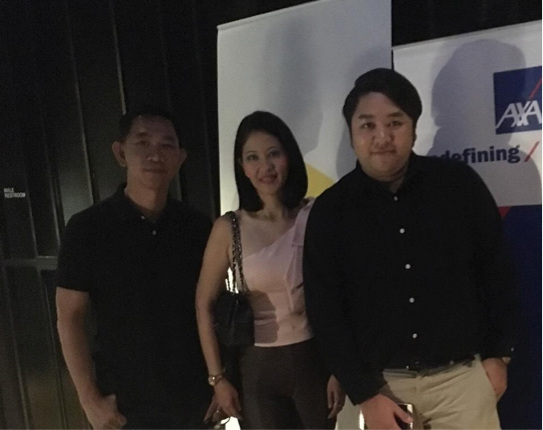
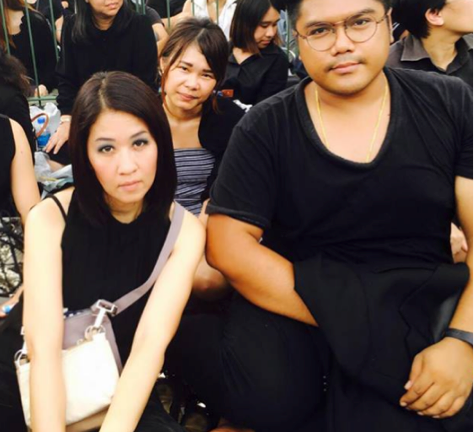
Within organizations, people follow or at least listen to the leader — the role model. Protecting and promoting the rights of LGBTI persons better start from the top. They have the authority to make decisions, put policies into action and make a real difference. I always remind the high-level officers that paying attention to issues raised, addressing them and being the employer of choice all come together.
Among colleagues, the general knowledge and importance of human rights, gender equality and relevant laws needs to be emphasized. Through speeches, presentations or trainings, they should learn how to respect and be made aware of the serious consequences certain behaviours could bring.
“The HR network becomes more aware of these issues. They went from knowing nothing about LGBTI people to amending policies that benefit them. All parties are happy and I cannot be happier.”
Tell us about the projects you previously worked on. Are there any achievements you would like to share?
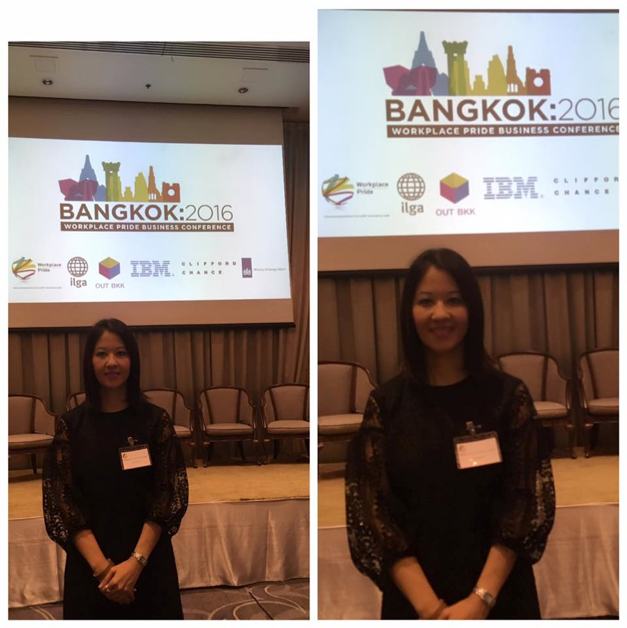
Joy: The awareness-raising through LGBTI inclusion trainings has been ongoing. I have delivered speeches and presentations and work with LGBTI communities, private companies, government departments, and international organizations such as the United Nations. It takes time but I can see it consistently progressing.
In the office where I work, I initiated a number of well-being activities. These are something that are small and low profile but effectively push both employers and employees forward to appreciate each other’s presence and contribution to the organization regardless of age, race, gender, etc. Take the international pot luck lunch for example. It does not have to be organized with a gender theme because the point is it does not matter.
The achievement I want to share would be the changes of policies in the organizations where I have worked and the organizations that I have given trainings at. The HR network becomes more aware of these issues. They went from knowing nothing about LGBTI people to amending policies that benefit them. All parties are happy and I cannot be happier.
I am also currently working on developing a website for LGBTI people from HR perspectives. There will be useful advice provided with regard to employment, including how to handle a range of difficult situations — from the recruitment process to dismissal — as well as general techniques on writing resumes and interviews.
I am doing as much as I can and am not going to stop.
Source : Medium
Copyright © All right reserved to pahichan.com Site By: Sobij.